Rereading Orientalism: Genealogy, Authority, and the Limits of Secular Critique
Edward Said’s Orientalism (1978) marked a decisive turning point in academic thought, initiating profound changes in the humanities and social sciences. By grounding his critique in post-structuralist theory and anti-colonial politics, Said revealed that Western representations of the East were far from neutral scholarly endeavors. Instead, they were deeply embedded in imperial power structures. As he argued, the “Orient” was not simply a geographical category. It was a constructed image produced through institutions, literature, and political discourses that functioned to dominate and subjugate non-Western peoples. This thesis has sparked new directions across disciplines, particularly in postcolonial studies, literary criticism, and cultural studies.
Nevertheless, Orientalism has been subject to both sharp praise and pointed criticism. While Said exposed the intimate connection between knowledge and colonial power, critics argue that his generalizations were too sweeping. Said portrayed Orientalist scholarship as uniformly essentialist, treating the East as timeless and incompatible with modernity. Ironically, his own analysis often risked reproducing a similar essentialism, collapsing diverse scholarly contributions into a monolithic narrative of imperial domination. This tendency, critics note, marginalized nuanced and context-specific studies of the East, erasing their intellectual significance under the broad label of Orientalism. Consequently, Said’s work has been faulted for neglecting epistemological diversity and offering little space for the subjectivity and agency of Muslims and other non-Western peoples.
This article seeks to revisit Orientalism critically through the frameworks of Michel Foucault and Wael B. Hallaq. The aim is not to diminish Said’s contribution, but to extend and complicate the debates he initiated. By bringing Foucault’s critique, Islamic thought, and analyses of the modern nation-state into conversation, this study attempts to construct a more nuanced framework for understanding the multifaceted and multi-centered operations of Orientalist power.
Power, Knowledge, and the Absence of Subjectivity
Although Said heavily relied on Foucault’s concepts of genealogy, discourse, and subjectivity, many scholars have argued that his engagement with Foucault was partial and theoretically incomplete.
In works such as Discipline and Punish and The Archaeology of Knowledge, Foucault’s genealogical method investigates the unstable, contingent, and power-saturated emergence of ideas and institutions. Unlike traditional history, which presumes linear progress, genealogy uncovers ruptures, disjunctions, and the entanglement of knowledge with power.
Said primarily drew on Foucault to demonstrate that knowledge and its production were never innocent but always implicated in imperial power structures. However, instead of highlighting multiplicity, discontinuity, and contestation, Said often constructed a narrative of domination. His account of Orientalism, which spans from Napoleon’s invasion of Egypt to British colonialism, French scholarship, and U.S. foreign policy in the Middle East, presents the East as an unchanging object of Western representation. This essentialist reading departs from Foucault’s insistence on context, contingency, and dispersed power.
Such generalization erases essential differences. For instance, nineteenth-century Orientalist philology, Cold War geopolitics, and contemporary Islamophobic discourses differ significantly in form and function. German Orientalism, for instance, operated within a framework of “internal colonialism” and differed from British imperial Orientalism. Since many Orientalists were German, their valuable contributions—including Annemarie Schimmel’s pioneering work on Sufism—risk being erased by Said’s homogenizing framework. By neglecting the specificities of context, institutions, and historical ruptures, Said’s reading underestimates the analytic potential of genealogy.
A further limitation lies in his treatment of subjectivity. By focusing overwhelmingly on how the West constructs the East, Said left little room for examining how subjects in the East negotiated, internalized, or resisted Orientalist discourses. For Foucault, power is not merely repressive but also productive: it produces norms, institutions, and subjectivities. In The History of Sexuality, for example, he shows how individuals come to identify themselves through medical and social discourses, “homosexual,” “ill,” or “healthy.”
By contrast, Said provides little analysis of how Eastern subjects were shaped in response to discourse. The East appears mainly as a passive object of representation, never as an active subject. This neglect obscures the diverse ways colonized peoples engaged with, appropriated, and reworked Western categories. Many non-Western intellectuals did not simply reject the West but reconfigured its elements in novel political and cultural forms. By preserving a strict West-as-subject and East-as-object dualism, Said undercut the complexity of colonial encounters.
Wael Hallaq and the Epistemological Limits of Orientalism
Wael B. Hallaq, the Palestinian-Canadian scholar renowned for his contributions to Islamic law and thought, has advanced a rigorous critique of Orientalism’s epistemological limits. In Restating Orientalism (2018), he exposes the internal contradictions of Said’s methodology, its latent essentialism, and its entrapment within secular-liberal epistemology.
A central concern in Hallaq’s critique is Said’s reliance on a diachronic method—treating Orientalism as a continuous, unchanging discourse from colonialism to the postcolonial era. Hallaq argues instead for a synchronic approach, one that is attentive to contextual variations across time and place. For him, Orientalism is not a self-sufficient pathology but a symptom of a deeper disorder within modernity itself.
This disorder, which Hallaq refers to as a psycho-epistemic crisis, reflects modernity’s epistemic sovereignty—the claim that Western modernity possesses the exclusive right to define, produce, and regulate all knowledge and subjectivity. This sovereignty severs knowledge from morality, legitimizes unchecked institutional power, and sustains structures of domination rather than liberation. Orientalism, in this view, is not the disease itself but the symptom of modernity’s epistemic pathology.
To address this crisis, Hallaq calls for epistemic decolonization. Modernity’s epistemological hegemony and epistemicide must be dismantled. In their place, Hallaq envisions the revitalization of Islamic epistemology, which integrates knowledge with morality and constructs a moral subjectivity grounded in accountability before God. Unlike modern epistemology, which produces the sovereign subject through the separation of knowledge and ethics, the Islamic tradition unites them under the principle of tawḥīd, harmonizing diverse cultures and civilizations without claims of supremacy.
Hallaq also critiques Muslim reformers who reproduce colonial epistemologies by incorporating Western secular categories into Islamic discourse. In doing so, they unwittingly regenerate colonial knowledge under the guise of Islamic vocabulary. For Hallaq, such projects fail to confront the epistemic crisis at the heart of modernity.
Conclusion
Orientalism is not a singular or isolated problem but a symptom of broader ideological formations—colonialism, capitalism, secular humanism, and the modern nation-state—that have long justified domination. While Said’s Orientalism initiated a critical conversation, its generalizations and silences demand further interrogation.
Through Foucault’s genealogy and Hallaq’s critique of epistemic sovereignty, we gain a more nuanced framework for understanding Orientalism, not as a timeless monolith, but as a historically variable symptom of modernity’s epistemological disorder. Addressing this disorder requires epistemic decolonization and the recovery of alternative intellectual traditions, particularly Islamic epistemologies that foreground the inseparability of knowledge and morality.
About the author
Muhammed Najil K.K. is a research scholar at Darul Uloom Islamic Da‘wah College, Thootha, affiliated with Darul Huda Islamic University.
References
- Said, Edward W. Orientalism. New York: Pantheon Books, 1978.
- Foucault, Michel. Discipline and Punish: The Birth of the Prison. New York: Vintage Books, 1977.
- Foucault, Michel. The Archaeology of Knowledge. New York: Pantheon Books, 1972.
- Hallaq, Wael B. Restating Orientalism: A Critique of Modern Knowledge. New York: Columbia University Press, 2018.
- Mahmood, Saba. Politics of Piety: The Islamic Revival and the Feminist Subject. Princeton: Princeton University Press, 2005.
Disclaimer
The views expressed in this article are the author’s own and do not necessarily mirror Islamonweb’s editorial stance.

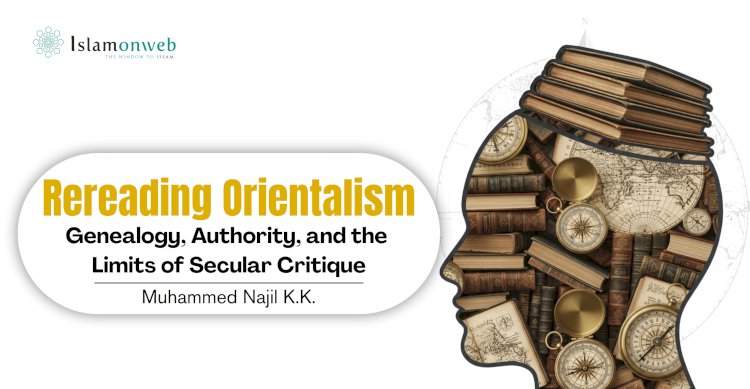


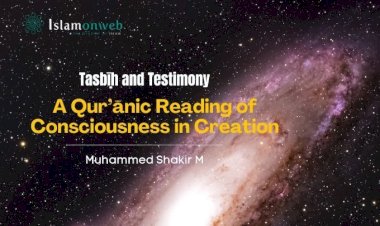
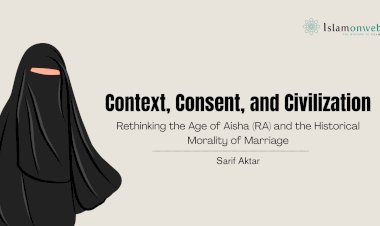
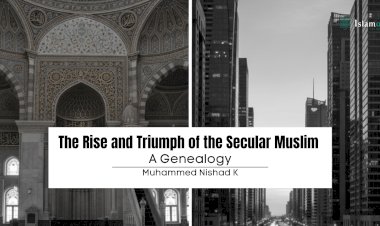
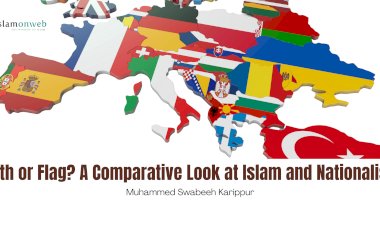
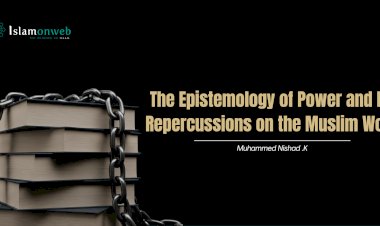
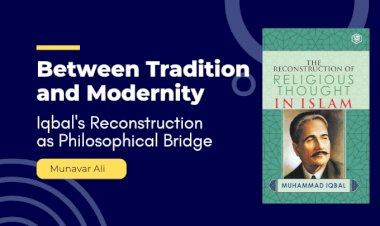














Leave A Comment